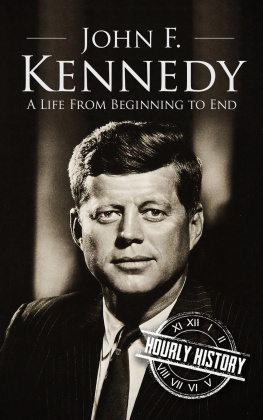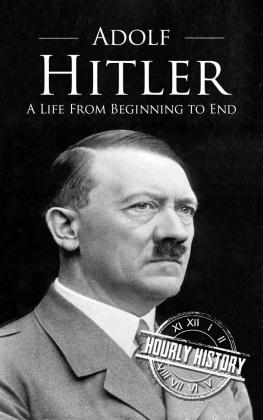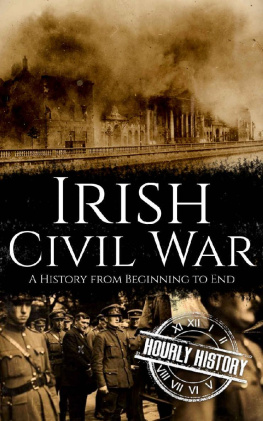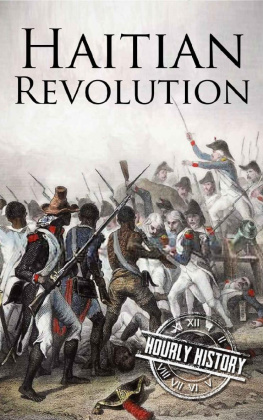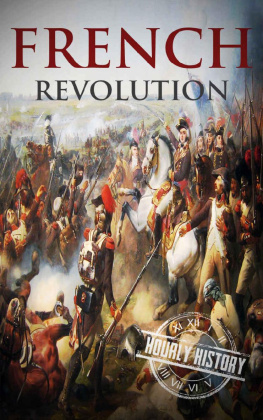Hourly History - Battle of Berlin - World War II: A History From Beginning to End (World War 2 Battles Book 9)
Here you can read online Hourly History - Battle of Berlin - World War II: A History From Beginning to End (World War 2 Battles Book 9) full text of the book (entire story) in english for free. Download pdf and epub, get meaning, cover and reviews about this ebook. year: 2018, publisher: Hourly History, genre: Politics. Description of the work, (preface) as well as reviews are available. Best literature library LitArk.com created for fans of good reading and offers a wide selection of genres:
Romance novel
Science fiction
Adventure
Detective
Science
History
Home and family
Prose
Art
Politics
Computer
Non-fiction
Religion
Business
Children
Humor
Choose a favorite category and find really read worthwhile books. Enjoy immersion in the world of imagination, feel the emotions of the characters or learn something new for yourself, make an fascinating discovery.

- Book:Battle of Berlin - World War II: A History From Beginning to End (World War 2 Battles Book 9)
- Author:
- Publisher:Hourly History
- Genre:
- Year:2018
- Rating:5 / 5
- Favourites:Add to favourites
- Your mark:
- 100
- 1
- 2
- 3
- 4
- 5
Battle of Berlin - World War II: A History From Beginning to End (World War 2 Battles Book 9): summary, description and annotation
We offer to read an annotation, description, summary or preface (depends on what the author of the book "Battle of Berlin - World War II: A History From Beginning to End (World War 2 Battles Book 9)" wrote himself). If you haven't found the necessary information about the book — write in the comments, we will try to find it.
Hourly History: author's other books
Who wrote Battle of Berlin - World War II: A History From Beginning to End (World War 2 Battles Book 9)? Find out the surname, the name of the author of the book and a list of all author's works by series.
Battle of Berlin - World War II: A History From Beginning to End (World War 2 Battles Book 9) — read online for free the complete book (whole text) full work
Below is the text of the book, divided by pages. System saving the place of the last page read, allows you to conveniently read the book "Battle of Berlin - World War II: A History From Beginning to End (World War 2 Battles Book 9)" online for free, without having to search again every time where you left off. Put a bookmark, and you can go to the page where you finished reading at any time.
Font size:
Interval:
Bookmark:
Copyright 2018 by Hourly History.
All rights reserved.
On May 2, 1945, the guns in Berlin ceased firing. One of the fiercest battles in all of human history had concluded. Berlin, once the proud capital of Hitlers Germany, was where the Fhrer had convinced the German people that the Third Reich would last a thousand years. But now it was 1945, not 1939, and the Red Army was no longer defending the Eastern Front against the invading Wehrmacht. They were outside Berlin, intent on vengeance and victory after years of war that had seen Europe humbled into a landscape of bombed-out ruins.
From September 1, 1939 until September 2, 1945, an average of 27,000 people were killed daily as the Allied and Axis powers battled one another in a global war that would be the most destructive war in history. World War II, which is regarded by some as merely a continuation after a 21-year intermission of World War I, spawned a ravenous hunger for death and destruction that began when Germany, under the leadership of Adolf Hitler, sought to redeem the humiliating defeat of World War I by building the German nation into a military superpower. At first, the Germans ran roughshod over the continent of Europe, unchallenged by the military forces of France, Belgium, the Netherlands, and the Scandinavian countries, until the swastika flew over the occupied nations. But Great Britain still stood, undefeated and alone. Hitler intended to invade the British Isles, but then he decided that it was time to ignore the non-aggression pact that foreign ministers Joachim von Ribbentrop and Vyacheslav Molotov had signed. On June 22, 1941, he invaded the Soviet Union.
The Red Army and the Soviet people were tested severely for a time, but in the end, it was the Germans who were forced to retreat as the Red Army swept through Czechoslovakia and Austria. By springtime, the Red Army was advancing on Germany, its sights clearly set on Berlin.
April of 1945 boded ill for the German Reich. With the Soviet Red Army advancing rapidly less than four years after the Germans launched their futile attack against the Russians, the Nazis knew that the defense of the Fatherland was a battle to the death. Berlin had been under attack by Allied planes for several years, with millions of shells firing down into a city that was low on resources. But frightening as the aerial bombardment was, it did not match the fear with which the German people faced the thought of the Soviets occupying their city. The Soviets had suffered greatly at the hands of the Germans, and they would be the first among the Allies to enter Berlin. What vengeance would they seek? How would they retaliate?
The Germans received their answer. To punish the German citizens for the brutality of the scorched-earth war policy fought by the Wehrmacht, the Red Army embarked on a punishing invasion. Its common to refer to the atrocities committed by an occupying army as the rape of a nation; in the case of the Red Army, the rape of Berlin was more than verbal hyperbole. Hundreds of thousands of German women were raped during the Allied occupation. The Soviets wanted vengeance for their suffering at the hands of the German soldiers in what the Russians called the Great Patriotic War when they defended the Soviet Union against invasion.
Even after Germany surrendered on May 2, 1945, the citizens lived in terror. Soldiers beat up the elderly, raped women in front of their parents or children, destroyed furniture and belongings. Because the Russians preferred women who appeared to be plump and healthy, the wives of the Nazi Party members, no longer the elite of society, were desirable as rape victims because they had been better fed during the war while the average Berlin citizen endured deprivation.
The war was so terrible that avoiding a repeat became a mission not only for Germany but for Europe as well. Even though the Cold War, which picked up where World War II left off, was a bitter proxy battle between the superpowers who emerged on opposite ideological sides after 1945, leaving Berlin a divided city and Germany a divided country, the continent, for the first time in European history, was at peace.
In the end, the Battle of Berlin, although it was the close of the European phase of World War II, proved to be the beginning of what would become modern Europe. Berlin itself would be divided into Allied zones that would eventually see the eastern part of the city confined behind a wall and the eastern section of the country turned into a Soviet satellite. There would be a new Europe and, eventually, in 1990, a new Germany. German militarism would over time give way to German democracy; the warring nations of Europe would evolve into the European Union.
But the price of peace was extravagantly high.
The first phase of World War II, the so-called Phoney War, lasted from September 1, 1939, when the Germans invaded Poland, until April 1940, when Germany invaded the Scandinavian countries Denmark and Norway. Belgium, the Netherlands, and France soon followed, leaving Great Britain to face the onslaught of the Nazi aerial attack.
The Soviet Union and Germany had signed a pact so that their two nations would not make war upon each other for the next ten years. But wily Joseph Stalin knew that it was only a matter of time before Adolf Hitler violated the terms of the non-aggression pact which Germany and the Soviet Union had signed in August 1939. Nonetheless, Stalin was startled when he received word that German troops were massing on the Soviet Unions eastern border; Stalin had doubted that Hitler would open a second front to the global war while he was still fighting the British, who had not surrendered despite the daily bombings.
Stalin ordered a partial mobilization to defend the nation against the invasion that came on June 22, 1941, when the 1,800-mile (2,900 km) long border of the Soviet Union was penetrated by 150 German divisions. The fighting was fierce, and it seemed as though there was no military force that could possibly withstand the German Wehrmacht on the ground and the Luftwaffe in the air. The German troops were well trained and well equipped; the Air Force was deadly in its accuracy. As the invasion began, the Germans gobbled up Russian lands, and by the middle of September, Leningrad was under siege.
But the Russians were not without their own unique defenses. Stalin had plenty of reserve troops to replace those killed in the fighting, and he had no qualms about the carnage inflicted on the Russian soldiers and civilians. Despite the difficulty of life in the Soviet Union under the despotic Stalin, the Russian people were fiercely patriotic and protective of their homeland. They would not surrender.
Twenty miles away from the Kremlin in Moscow, the German offensive could not advance any further. The Soviet armaments industry was transported to the east, away from the fighting, so that it could continue to provide weapons. Ultimately, however, the Russian secret weapon was the weather. When winter arrived early in 1941, the German soldiers, who did not have winter coats because of Hitlers confidence that Germany would be victorious before the weather changed, were vulnerable against the Soviet counteroffensive that got underway in December.
Font size:
Interval:
Bookmark:
Similar books «Battle of Berlin - World War II: A History From Beginning to End (World War 2 Battles Book 9)»
Look at similar books to Battle of Berlin - World War II: A History From Beginning to End (World War 2 Battles Book 9). We have selected literature similar in name and meaning in the hope of providing readers with more options to find new, interesting, not yet read works.
Discussion, reviews of the book Battle of Berlin - World War II: A History From Beginning to End (World War 2 Battles Book 9) and just readers' own opinions. Leave your comments, write what you think about the work, its meaning or the main characters. Specify what exactly you liked and what you didn't like, and why you think so.

